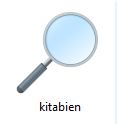Introduction:
WordPress is an open-source, free website creation tool. WordPress is a learning management system that utilizes a MySQL database and is technically based on PHP (CMS). In layman's terms, WordPress is the most user-friendly and efficient blogging and website builder accessible today.
WordPress is a great platform for creating a variety of websites. WordPress is a flexible CMS that can be used to create websites for companies, portfolios, and e-commerce. WordPress is a fantastic option for both big and small websites because it was created with usability and flexibility in mind.
WordPress Website:
Any website that makes use of WordPress as its content management system is known as a WordPress website (CMS). Both the frontend and the backend of the website—where users log in to make changes or add new content—are powered by WordPress (the visible part of the website that your visitors see on the web).
Just a few examples of the kinds of websites you can create using WordPress are provided here.
Blog:
The term "weblog," which is used to describe websites that maintain an ongoing record of content, is shortened to "blog." A blog often presents a list of postings in reverse chronological order and includes diary-style commentary and links to material on other websites.
E-Commerce Site:
The phrase "e-commerce," sometimes known as "electronic commerce" or "internet commerce," refers to the exchange of money and data for the purpose of conducting business over the internet.
Business Site:
You have access to all the tools you need to create a polished website with WordPress.com Business. Try as many premium WordPress themes as you like, then use CSS to make any changes you want. Have a plan in mind already? You can upload as many WordPress themes as you want with your Business subscription.
Portfolio Sites:
WordPress is an excellent platform for showing your personal brand because it also has a wide selection of themes for professional portfolios. While the "Posts" functionality can be utilized for the individual items you wish to highlight, whether they are in image, text, audio, or video format, the "Pages" functionality can be used for your homepage, about page, contact page, etc.
E-Learning Websites:
Students can take online classes, track their progress, obtain resources, and do much more through an e-learning website. Using a certain type of plugin known as a WordPress LMS plugin, you can provide online courses from a WordPress website.
Mobile Applications:
Some users may find it much more comfortable to utilize a mobile app than their device's browser to access the services of your site. Although app development might be expensive, WordPress plugins can easily convert your website into an app.
Membership Sites:
You can hide content behind a paywall or need an account log in on a membership website. Users must log in or purchase the content in order to access pages or posts. With extra plugins, WordPress can also manage membership websites.
Steps to Start a WordPress Blog:
To establish a WordPress blog, you need three things:
- Engage in web hosting (we recommend Bluehost).
- For your blog, choose a domain name.
- Set up the free WordPress blogging program.
- After logging in, post your first blog entry..
- Choose a theme to alter the appearance of your blog.
- Install a few necessary plugins.
- Remember to market.
How to install WordPress on PC/Laptop:
WordPress may be easily installed on localhost.
It's crucial to keep in mind that WordPress does not run natively on your local computer. For proper operation, it needs a web server, PHP, and a database (MySQL is a popular option). These elements work together to form the setting in which WordPress runs.
- The initial step is installing XAMPP on your PC.
- After starting the modules in Step 2 and check your server.
- Add the WordPress files in step three.
- Create a database for WordPress in step four.
- Step 5 is to Use the on-screen installer to install WordPress locally.
Benefits of WordPress:
WordPress is a popular blogging and business platform. In actuality, WordPress powers more than 40% of all websites. Here are some of the explanations for WordPress's appeal:
- WordPress supports SEO.
- All media types are supported by WordPress.
- WordPress is simple for a newbie to use.
- Open-source software is available for WordPress.
- incredibly adaptable with WordPress themes.
- No need to be code-savvy.
- With WordPress plugins extensible
- a robust user and developer community.
- a market for premium plugins and themes.
How to make money with WordPress:
WordPress has spawned new industries. Today, there are many ways to make money with WordPress, including constructing websites for clients, operating an online store, and WordPress consulting.
- You can specialize in WordPress websites if you are a web developer or designer. A benefit of specializing in WordPress is being able to teach clients how to utilize their websites because WordPress is so simple to operate.
- WordPress site owners frequently lack the time necessary to keep up with their blogs. Important website duties like software upgrades, backups, security, SEO, and more are all part of WordPress maintenance.
- Many organizations who want to increase their organic search traffic and outrank their rivals can benefit from WordPress SEO services. By offering services like website audits, keyword research, content creation, and more, you may specialize in WordPress SEO.
- Some companies want direction on how to plan, develop, expand, or enhance their website. WordPress specialists are fully versed in WordPress functionality, tools, and optimization.
Conclusion:
WordPress offers newbies an excellent opportunity. Without knowing how to code, anyone can make money with WordPress and offer online services. For people who have just begun their careers and want them to advance quickly, WordPress is a good shortcut.
Here are some free courses for learning WordPress:



Nauman Malik Appreciating to your comment for more information subscribe my Blog.